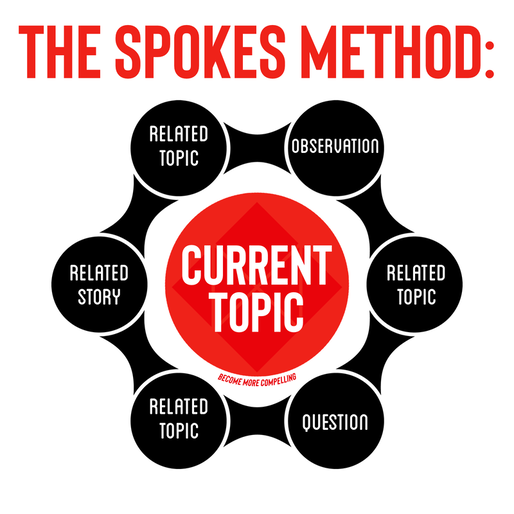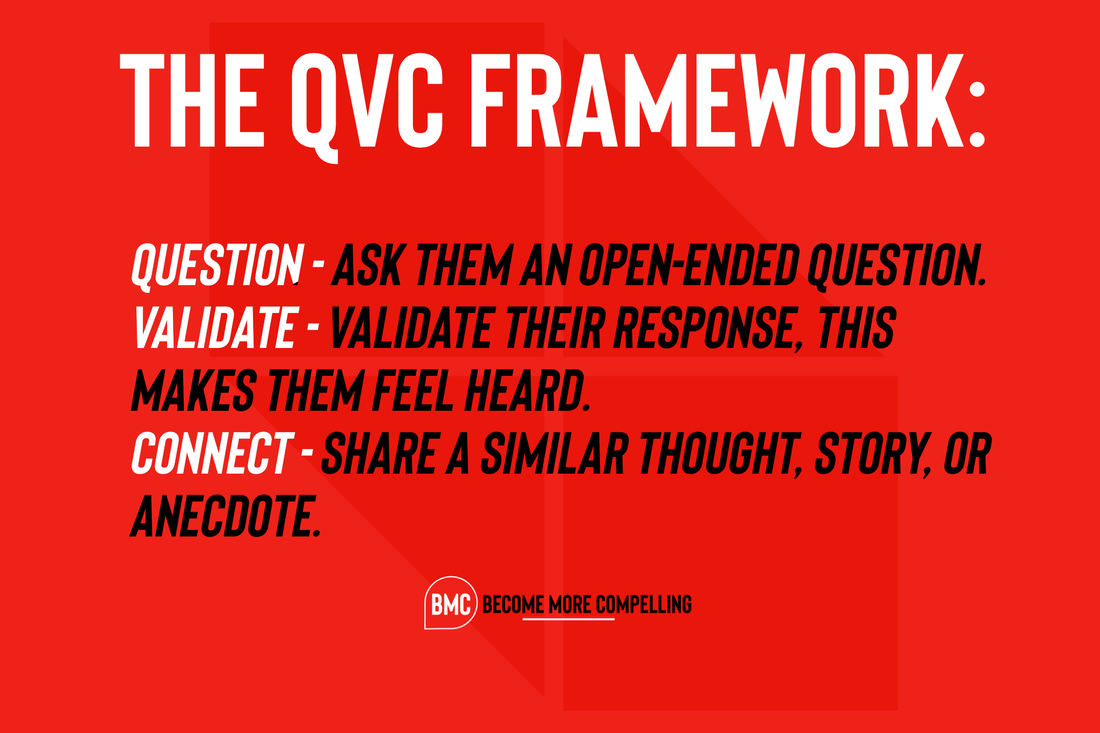Real talk…
EVERYONE feels socially inept at some point in their lives.
It’s just part of being human.
Maybe you’ve felt socially inept when…
- You told a joke that totally bombed at that backyard BBQ.
- You accidentally blurted out something rude and didn’t realize it until later.
- Your brain seems to shut off and you have no idea what to say in conversations.
If you’ve ever felt like that...I’m here to tell you that it’s okay. It happens!
And the great thing is that being socially inept is something that can be improved. Working on your communication skills can help you become more socially skilled and that feeling of being socially inept will fade away.
In this article, you’ll learn…
- What it means to be socially inept
- How to recognize if you are socially inept
- 7 Ways to stop being socially inept
- Ways to build conversation skills
- Ways to practice conversation skills
First: Let's Look at a Socially Inept Definition
Being socially inept means “being unfamiliar and/or uncomfortable with social interactions.”
This "ineptness" can sometimes confused as someone being standoffish.
But it’s important to remind yourself that being socially inept isn’t a conscious choice, simply a part of you that you might want to work on if you want to become more social, get more friends, and have better relationships with others.
Next, let's look at some signs that might help you figure out if you're socially inept.
"How do I know if I am socially inept?"
The first step to any sort of self-improvement is self-recognition, and here are a few ways to tell if you have some social ineptness:
- You balk at the thought of any sort of social interaction. For some, this is simply a will to be alone, but if you find yourself saying “no” to invitations but wishing you could say “yes,” then you are socially inept with an internal desire to improve upon it.
- People just don’t “get” you. If you have ever been part of a social gathering and chimed in with some quips and jokes that just didn’t land, it could be because the people you were with are just rude, but it could also mean you have a few social skills that could use a little polish.
- You say things and immediately wish you didn’t... then think about it for two days. Quite often, it is just your own perception that you said something out of turn, but nonetheless, that “oops” feeling can be a sign of social ineptitude, too.
- You struggle with body language and conversations often come to a screeching halt. This, too, can be the product of your surroundings, but if you catch yourself feeling somewhat comfortable with an individual or group and still hearing crickets after you chime in, you could certainly benefit from honing some of the skills in this article.
- You’re told that you are “too blunt” or “ask too many questions.” For some, being socially inept isn’t so much not talking as it is not talking in the correct manner. Being too blunt would definitely fall into this category.
If you see yourself in any of these points, that’s okay!
Just because you feel socially inept right now doesn’t mean you have to be socially inept forever.
This is 100% something that can be improved.
How To Stop Being Socially Inept
First, get in the right mindset...
1. Be VERY Careful About You Talk To Yourself
Often our words can end up shaping our future.
- If you call yourself “lazy” 1,000 times, how likely is it that you’ll join a gym or run a half-marathon?
- If you call yourself “bad with money” 1,000 times, how likely is it that you’ll be wealthy?
- If you call yourself a “slacker” 1,000 times, how likely is it that you’ll be successful?
The answer? It's not likely.
The same is true for our people skills.
If you believe being socially inept is ingrained forever, then you’ll face a much bigger challenge overcoming it.
Tell yourself that your skills need some work, not you as a person (I’m unskilled at a laughable amount of things others are good at).
There are parts of you that are awesome. you just need some help showing others how awesome you are.
People skills are just like any other skills. If you work on them consistently, you’ll improve.
There will certainly be times of anxiety when thrusting yourself into a situation where you’re trying your new skills, but it’s part of the process and overcoming that feeling is a great moment in everyone’s quest to be more socially adept.
Next, consciously work on these things the next time you have a chance.
2. Listen To People’s Words-And Their Emotions
Often we hear but we don’t listen.
If you’ve ever shared a meaningful story, and then someone just launches into a unrelated topic, then you’ve felt this firsthand.
If someone is really into what they are saying, they will be expecting a response with at least a similar level of emotion to what they shared with you.
After someone speaks, take a moment to digest their emotion and plan your responses accordingly.
If someone is sad, don’t make a joke. If someone is happy, share in their excitement.
People typically want a healthy dose of empathy, and if you can give it to them, then you’ll be someone that they enjoy spending time with because they'll feel like you "get them".
3. Do This if Your Mind Goes Blank And You Run Out of Things to Say
If you feel like you’ve run out of things to say, try the Spokes Method – “Blanking” when it’s your turn to chime into a given conversation is something that happens to everyone… but it’s just another skill we can work on!
The Spokes Method is a metaphor for a bicycle wheel, with the center hub being the topic of conversation.

Work on listening intently while also being able to think of things related to the topic.
Someone may be talking about hiking, for instance, and you don’t really like the thought of being around bugs, so it’s not your thing.
You may, however, have an Uncle who loves hiking, or live near a couple of trails your friends tell you are cool. It’s a balancing act that takes practice, but work on thinking about points you can make, while still listening intently.
For more on the Spokes Method, watch this video:
4. Don’t Ask Too Many Questions And Fall Into The Interrogation Trap!
Don’t fall into the interrogation trap – A conversation is not an interview, so it’s important to ensure you are both asking questions and both answering questions with statements and stories.
If you've spent your whole life asking too many questions, it might feel a little weird at first, but this tip will make you MUCH less socially inept.
A good exercise is calling someone you’re comfortable speaking with and letting the conversation go on as it normally would, but take note of whether or not you’re doing more asking or answering.
After the conversation, do a gut-check.
Were you asking questions 90% of the time? 25% of the time?
The rough goal here is to ask questions 50% of the time, and follow up with statements or observations the other 50% of the time.
Finding a good balance with someone you’re comfortable with will make it easier to do the same when interacting with somebody new.
Bonus tip: Use The QVC Framework for better conversations
Listen to others with the QVC framework, but be conscious of where to draw the line between deep questions (good) and interrogation (not so good)
Q - Question – Ask them an open-ended question.
- "What was that like for you?"
- "I’m so interested in x. Can you tell me more about that?"
- "How has that affected your life?"
V - Validate – Validate their response.
- "I totally get that."
- "Wow, I had no idea. Thanks for sharing."
- [Spokes Method] "I can relate, in fact…"
C - Connect – Share a similar thought, story, or anecdote.
- "… I had a similar experience happen to me..."
- "That reminds me of a time when…"
- "Wow, you would get along great with my cousin. He did x…"

For more tips on mastering small talk and overcoming shyness, check out this episode of my podcast:
5. Pay Attention to These Subtle Non-Verbal Cues
This one takes some practice, but people say a lot with their body language and eyes, and some experts say body language is more than 70% of communication.
Here are a few non-verbals to pay attention to in others:
- Lack of eye contact - often signals disinterest
- Glances towards exits - a sign they’d like to end the conversation
- Smiles - almost always good! Generally signifies interest. Beware of fake smiles, though!
- Hand gestures during responses - Generally, a sign that someone is excited about whatever they are talking about.
- Happy (moving) feet - often means nervousness or discomfort
- Moving closer to you - Generally, a sign of interest
- Moving or angling away - Generally, a sign of disinterest
It’s important to pay attention to these cues, but also keep in mind that clusters matter.
What are clusters?
Groups of cues that all point to one potential meaning.
If someone only has their arms crossed, for example, that one data point doesn’t necessarily mean that they aren’t feeling the conversation.
If you notice arms crossed, feet pointed towards the door and a lack of eye contact, it might be time to cut the conversation short.
For help spotting fake smiles, check out this video:
6. Focus on The Positive During Conversation
Even if discussing negative subjects, make a conscious effort to keep things light.
This simply makes you more welcoming, which is a trait of people who are socially skilled. (Bonus: According to the Mayo Clinic, positivity can increase your quality of life and reduce stress levels.)
When discussing positive things, be enthusiastic about what the other people in the conversation are visibly excited about.
This is another thing you can take note of during a conversation with someone you’re very comfortable with.
It’s totally natural to dig into some deeper, possibly negative, subjects with people you’re close with.
But if you realize that most of what you talk about with friends and family is negative, or if you catch yourself complaining constantly, you may want to make a conscious effort to talk about positive stuff with them, so it can become a habit when talking to new people!
7. Create Opportunities to Practice Your People Skills
You can read everything ever written about improving your people skills, but if you don’t get out there and practice, it’s much tougher to improve.
Before your next meetup or work happy hour, set yourself up with some less-stressful situations that still encourage you to interact socially.
Here are some great choices to get you started:
- Volunteer locally
- Take a class
- Go to a meetup
- Join a sports league (kickball, pickleball, etc.)
- Start a small conversation with a stranger
- Say “Yes!” next time you’re invited somewhere
- Interact more at public places – talk to the barista or tell your Uber driver about your dog
Taking a class, or finding a local meetup may be easier if you live in a populated area, but don’t forget online meetups and classes!
Zoom and Skype can be a great way to practice your people skills, and make some new friends at the same time!
Google some of your hobbies (or potential hobbies) with “online class” or “Zoom meetup” and you might be surprised at what you find!
Summary: How To Stop Being Socially Inept
- Be careful about the language you use to describe yourself!
- Listen to people’s words...AND their emotions
- Use the Spokes Method to never run out of things to say
- Don’t ask too many questions and fall into the Interrogation Trap!
- Pay attention to non-verbal cues
- Focus on positives during conversation
- Create opportunities to practice your people skills
Next Step
If you’re interested in improving your people skills even more...
Click here and I'll start you off with my free 56-minute audio guide on joining and enjoying group conversations. (As well as Q&A videos, podcast, and much more!)
In the audio guide, you’ll learn…
- How to jump into a conversation that has no opening
- Genuinely Connect With Anyone About Any Topic
- How To Get Out Of Your Head And Stay Present In Group Conversations
- And more (word-for-word scripts, body language while joining a group, etc)
4 ways I can help you level up your communication skills:
1. Private Coaching: I’m the secret weapon top Performers at Google, Netflix, and the US Army trust for people skills coaching. Imagine what I can do for you.
2. Social Accelerator: Social Accelerator is my proven self-paced + group coaching system for turning social awkwardness into confidence, overthinking into action, and hesitation into meaningful connections.
3. My group convos audio guide. Join over 5,000 overthinkers who have supercharged their group conversation skills using tested strategies in my 56-minute audio training.
4. My bestselling book Confidence-Maxxing. What I teach in this book comes from lessons that took me over 20 years and 100,000 conversations to learn. If you've ever felt like people skills are something you should've figured out by now but haven't, I wrote this for you.

I'm Jeff Callahan
I make it nearly impossible for overthinkers to fail at improving their people skills. (I've helped hundreds of people over the last 10 years)
Want to never run out of things to say in conversation again so you connect with more people and make new friends?
Want to speak up more in important meetings at work so you get promoted faster and have an awesome career?
Want to develop unshakeable social confidence and competence so you can walk into any room and feel like you belong there?
As your coach, I'll help you move forward faster.



















